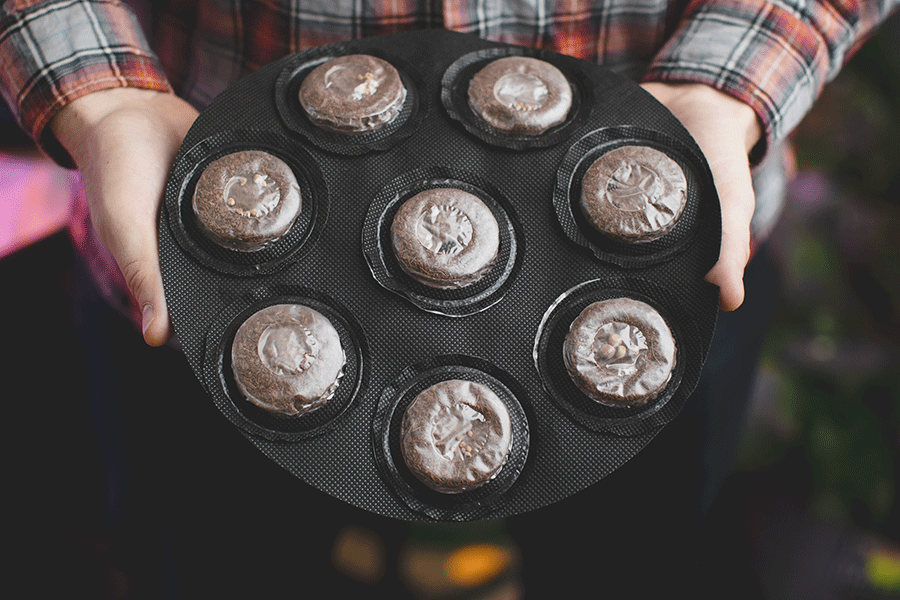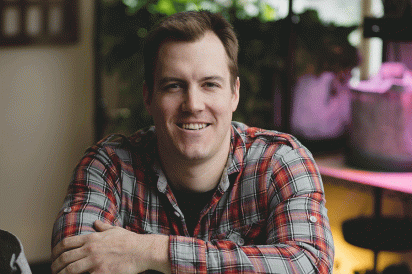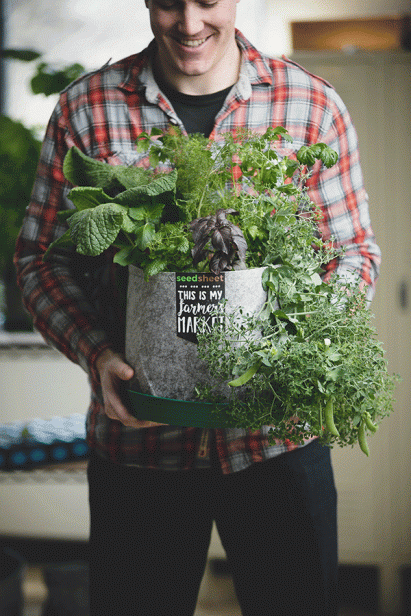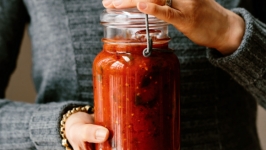Seedsheet
Spring has finally arrived, and dark winter evenings poring over seed catalogs have given way to visions of bountiful backyard gardens coming to fruition. Fresh salads, ripe heirloom tomatoes, maybe even some garlic? But wait, what if you don’t have the space or perhaps you simply don’t have the time to dedicate to planting and tending? Imagine if you could just lay out a roll of seeds, water them and let them be, no weeding or knee pads necessary! Well, that dream has become a reality thanks to the innovation of Seedsheet based in Middlebury. From toilet paper prototypes to Home Depot accounts, this company has taken off rapidly with no signs of slowing down.
Seedsheet was founded by Vermonter Cam MacKugler in 2014. Armed with a degree in architecture and environmental studies from Middlebury College and a post-grad job at Breadloaf Corporation, an architecture and design firm, MacKugler was well positioned to create a product that is a marriage of both architectural precision and environmental innovation.
Seedsheet, which manufactures right in Middlebury, is truly a ground-up operation. The seeds in the sheets are primarily sourced from High Mowing Organic Seeds in Wolcott, Vermont, while 10% are sourced from Johnny’s Seeds in Maine (which are all non-GMO, but not always organic). Each Seedsheet contains a weed-blocking fabric, embedded with dissolving pouches that contain seeds as well as a buffer of soil.
As avid gardeners know, sometimes the best ideas quite literally bloom in one’s garden, and in the case of Seedsheet, this ad- age couldn’t be more true. One evening, while busily harvesting his dinner on an 80-acre farm in Orwell, where he was house-sitting, MacKugler began to observe the precision with which each row of herbs and vegetables were meticulously planted and, in his mind’s eye, saw a blueprint.
“I dropped my harvest, sprinted into the farmhouse, grabbed my co-worker’s kids’ crayons and sketched out the rst version of the Seedsheet. I envisioned a fabric sheet that already contained the seeds at their ideal locations, that could be simply unrolled and planted. I tested the initial concept by making several variations of homemade “seed-tape,” which essentially consisted of seeds trapped between types of paper. I tried newspaper, paper towel and even toilet paper, and the results were unsurprisingly all positive!” MacKugler said.
With his concept in hand, MacKugler was off. After beta testing and refining the product, he submitted his patent application and launched a Kickstarter campaign in December 2014, which successfully met its goal of raising $30,000. The first assortment of Seedsheets ranged in size from those suited to smaller decks to those for raised bed gardens and even a couple of larger options to accommodate families. As the edgling company tested the waters with their products, an unexpected twist came their way: Less than 12 months in, HomeDepot.com expressed interest in the products. en, as a result of their successful launch online, Seedsheets were in 46 Home Depot stores by the summer of 2016.
MacKugler recalled that while the HomeDepot.com account was a boon, it was also stressful as a start-up. He needed to hire 15 employees to boost production volume, but luckily, in true Vermont fashion, farmers, grandparents, friends and neighbors came out to enthusiastically lend a hand.
As Seedsheet has grown, they have found their greatest success in urban markets like San Francisco, Los An- geles, NYC, Boston, Houston and Austin. While the product itself has much to do with this positive response, there’s also the “made in Vermont” aspect that endears people to Seedsheets. “It is a testimony of how many people actually want to eat like Vermonters!” MacKugler opined.
In response to this demand, Seed- sheet has been focusing more on “cu- rated experiential products for space- constrained urban foodies.” The Grow Your Own product line is the latest Seedsheet creation that directly addresses this need. The line includes seeds that will grow into the ingredients for specific meals, such as tacos, caprese or even cocktails.
With such steady growth over the past two-plus years, what does the future hold for his business? MacKugler
envisions customizable Seedsheets, the launch of an app that provides customers with weather recommendations based on ZIP code for planting and harvesting and “real time” noti cations of when one’s basil is ready to harvest, replete with a video on how to pick it and a recipe for pesto, for example.
Ultimately, Seedsheet is about helping people become more in touch with their food. “Gardening has this stigma of being a difficult and time-intensive hobby rather than a logical source of food, especially for space-constrained urbanites,” MacKugler said. “Our goal wasn’t just to make gardening ridiculously easy, but to make it rel- evant to the modern consumer, where you’re not just growing plants, you’re growing tacos, hot sauce or cocktails!”
Want to learn more? You can check out Seedsheet at seedsheets.com and follow them on social media @seedsheet.
Corey Burdick is excited to make fresh spring cocktails sprung right from her vintage bar cart thanks to the Grow Your Own cocktails Seedsheet, which will be taking its rightful place on the top rung. Mojito anyone?











